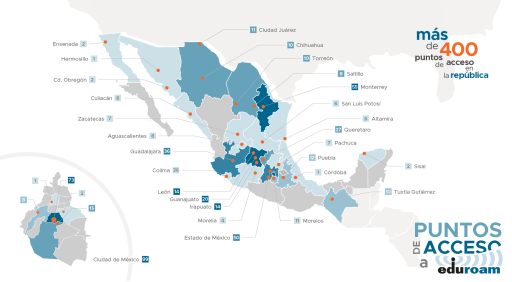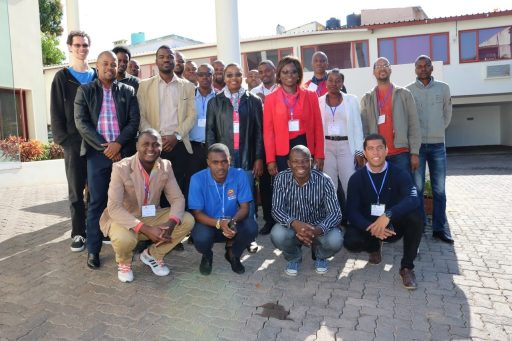The suspension of classes, as a result of the health emergency, forced Chilean universities to accelerate their digitization processes and the incorporation of videoconferencing platforms.
The global network of interconnected National Research and Education Networks is boosting international capacity where needed as part of the global rapid response to the recent novel coronavirus disease (COVID-19) outbreak.
In Mexico, the eduroam service has grown significantly in the last several years, from two locations 2014 to 444 today, providing the research and education community with a secure, free national and worldwide wifi roaming service.
Data from the Internet of Things Applied to Pediatrics project developed in Brazil may contribute to the early identification of risk factors related to obesity.
TLALOC-Net is a network of GPS and meteorological stations used to study the atmospheric and solid earth processes, allowing better analysis of the Mexican subduction zone.
A collaboration between Brazil and Mozambique involving training and knowledge sharing has yielded beneficial results in a number of areas ranging from telehealth to cybersecurity.
3rd grade students from seven public schools near Sao Paolo have participated in a pilot project for the preparation of games to favour math learning. The project is proving that learning numbers and calculus can be a more fun experience with the use of educational games in the classroom
The LAGO (Latin American Giant Observatory) project traverses the skies of Latin America to set its sights on uncovering the mysteries of faraway galaxies.
The Amazon region is one of the ecosystems on the planet most affected by global climate change. The reason is variations in the Ecuador line cause events like floods, droughts and storms that directly affect the environment and the local population.










